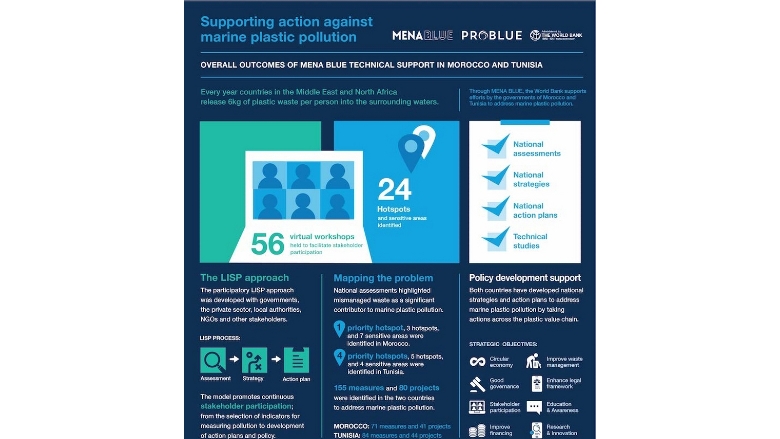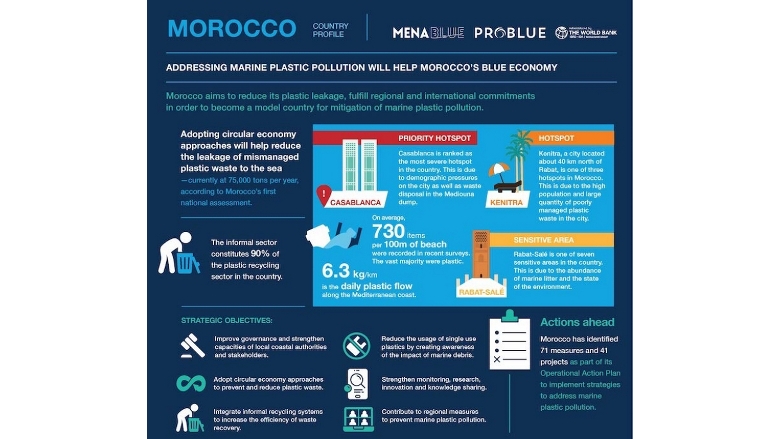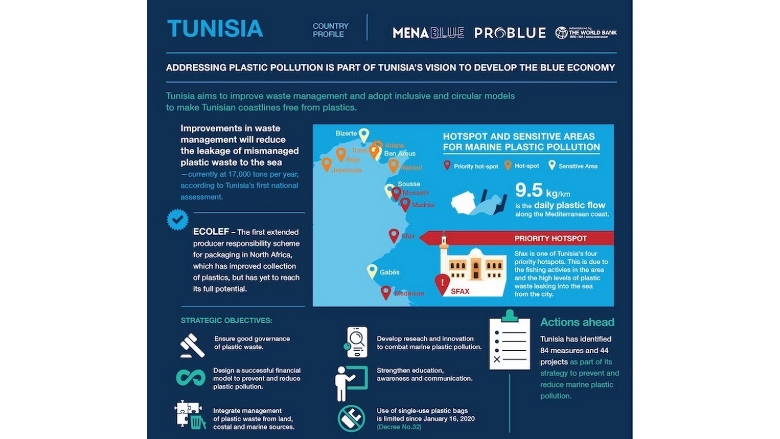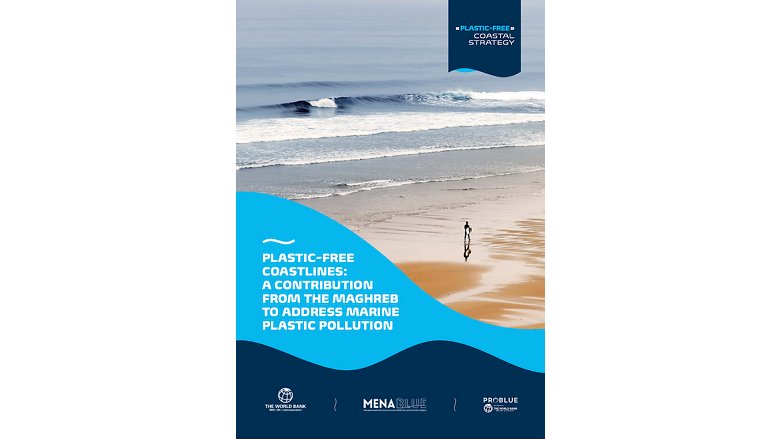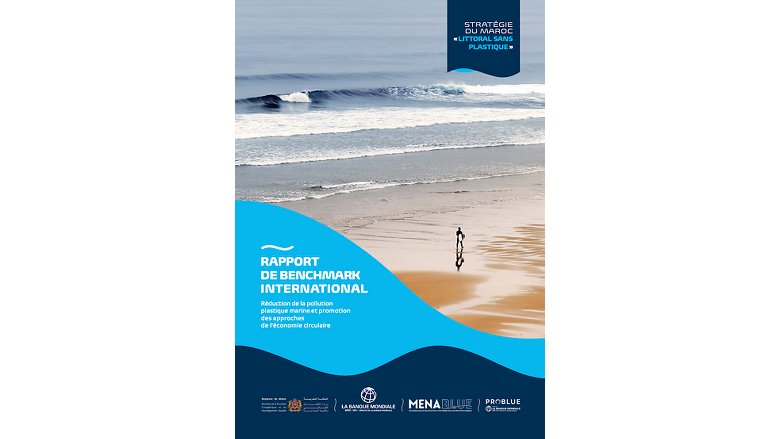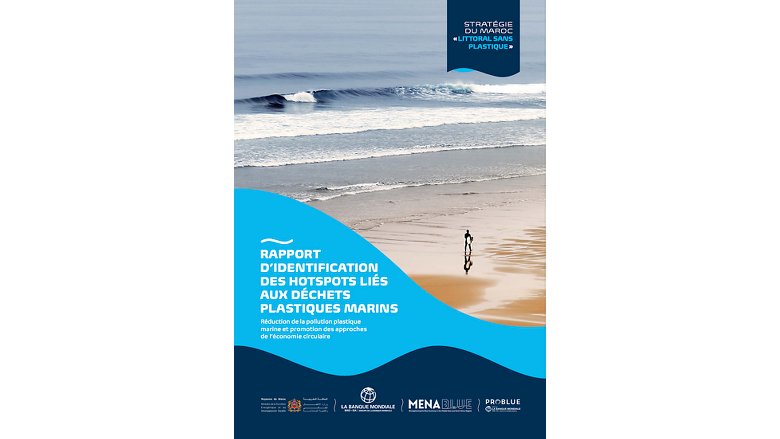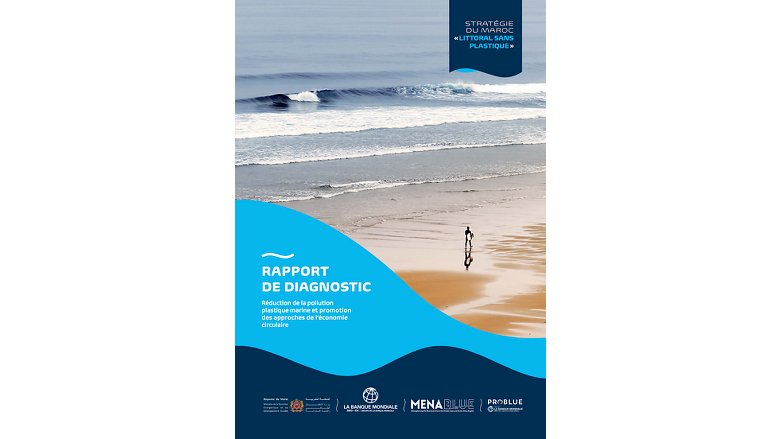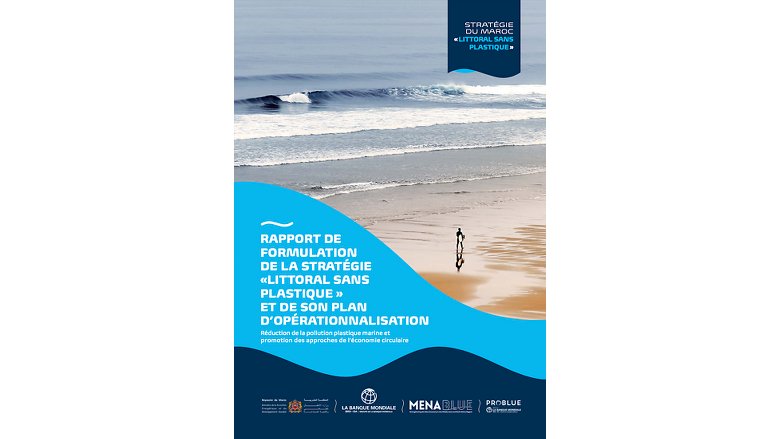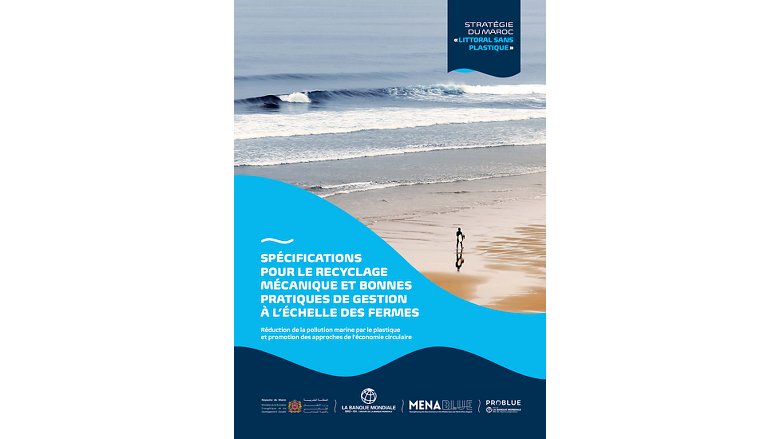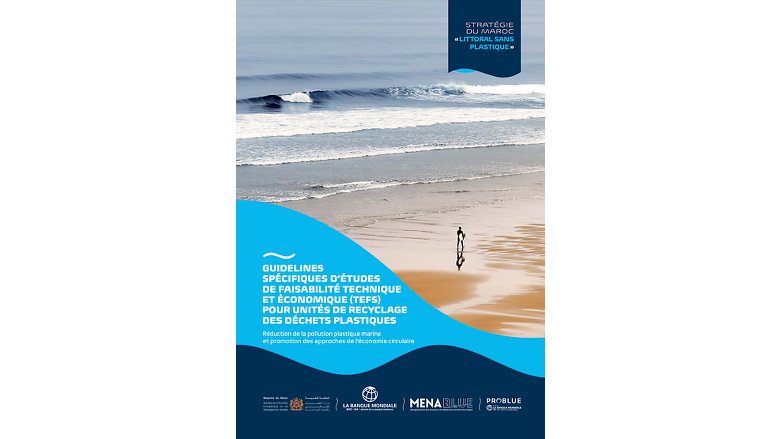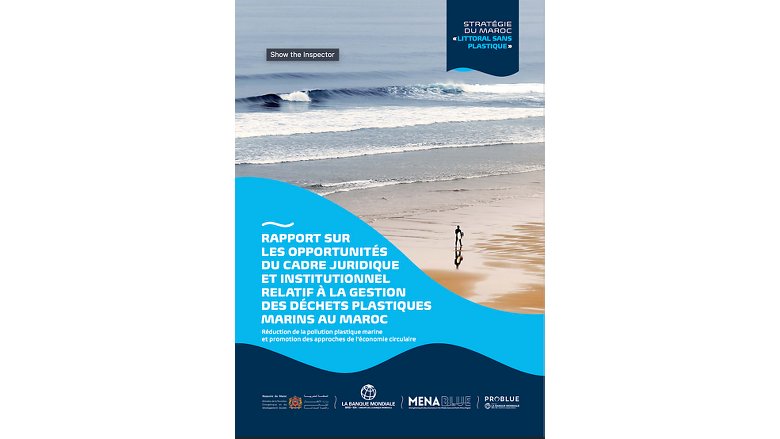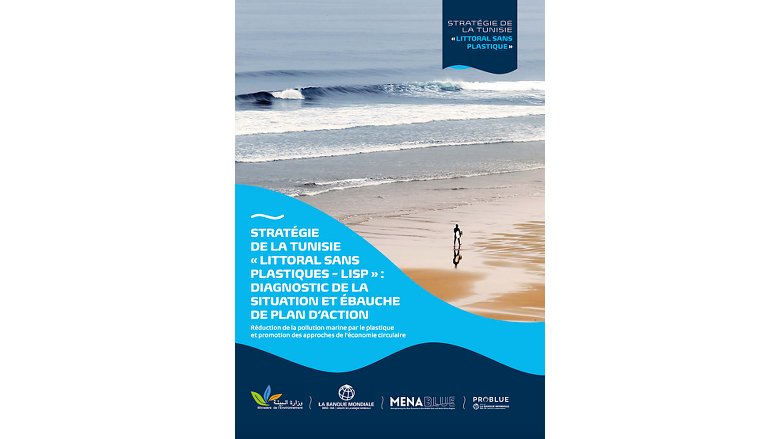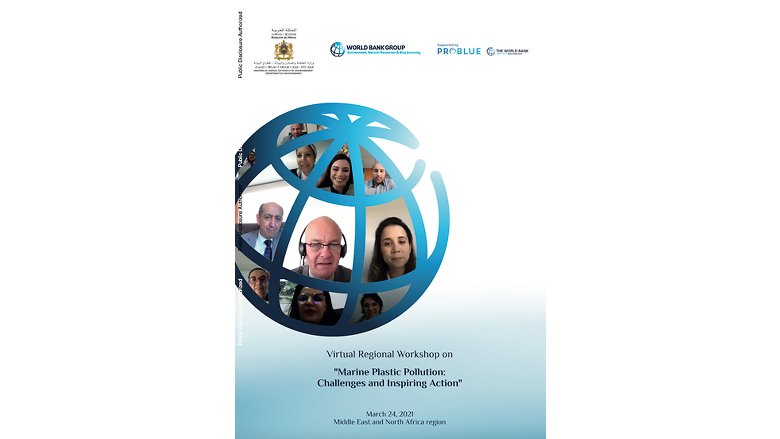The Tunisian and Moroccan governments are developing action plans to reduce the amount of marine plastic pollution going into the ocean and the sea. They also want to prevent it, in part by adopting a “circular economy” that aims to minimize waste and pollution by extending the lifecycle of plastic products and promoting the sharing of materials and products.
To prepare the action plans, the governments used the results of technical studies that the World Bank had provided support for to measure marine plastic pollution along their coasts. The study shows that about 6.3 kilos of mismanaged plastic waste enter the waters of the Mediterranean off Morocco from every kilometer of coastline every day, the equivalent of almost 14 pounds over every half a mile or so. Off Tunisia, the amount is estimated to be larger, 9.5 kilos or 21 pounds per kilometer.
This study involved gathering information from a broad range of stakeholders whose work involves both ends of the plastic value chain—in the sea and on terra firma—from fisheries, maritime shipping, and agriculture, as well as from NGOs, academia, and the private sector. Two dozen marine plastic pollution hotspots and sensitive areas, 11 in Morocco and 13 in Tunisia, have been identified as a result.
